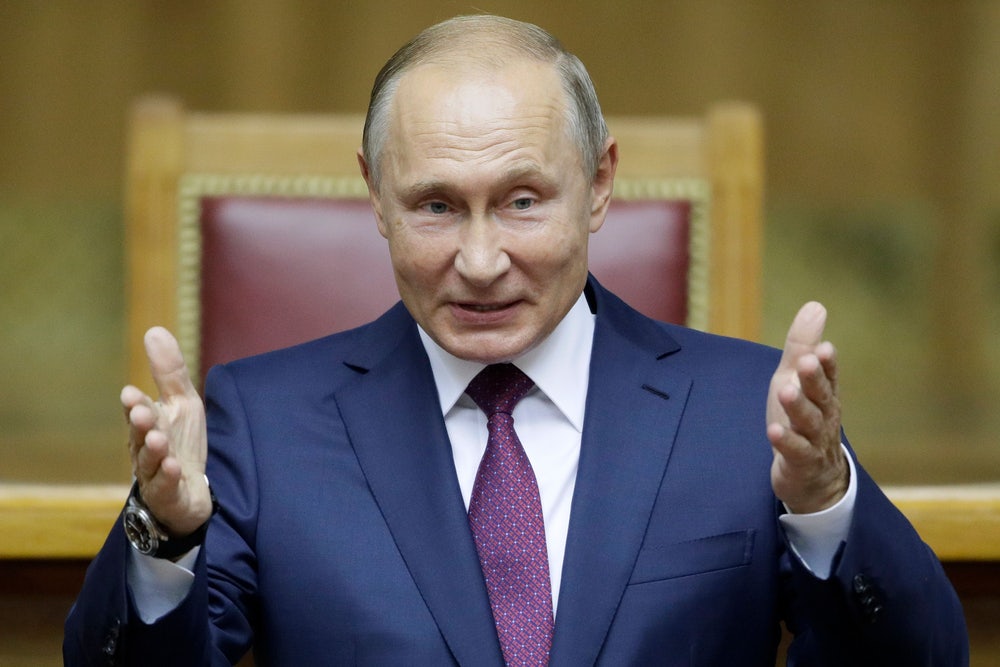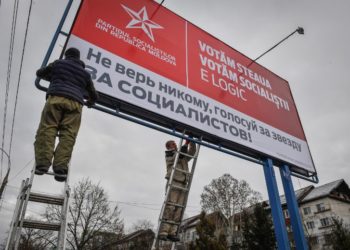After an “American Century” and decades of American predominance and economic hegemony, China and Russia are jostling to expand their influence in their own respective ways.
Russia is actively exploiting its influence with former Soviet states, wielding its political power while delving into its titanic natural resource reserves.
Concurrently, the Chinese have prioritized economic expansion and the benefits that financial dominance can afford their policy interests, while extending their influence into the East and South China Seas as part of their military strategy.
These competing interests affect American policies and pose unique policy challenges. To counter this revisionist momentum, the United States needs to rethink its grand strategy.
The most effective policy move to counter Russian destabilization is continued economic disruption within Russian domestic markets and their export markets. To contain China, Washington needs to pursue further economic and political partnerships throughout Asia.
A Policy of Destabilization
The Russian agenda has sought to enable a “polycentric world” through traditional diplomacy, the application of “soft power,” and further power projection amongst former Soviet states and Commonwealth of Independent States partners, a regional intergovernmental organization with nine members set up after the 1991 Soviet Union dissolution.
Vladimir Putin and his persistently loyal Duma recognize the inextricable linkage between economic stability and national security. This correlation drives both policy and economic engagement regionally amongst former Soviet republics.

Putin seeks new export markets for arms and Russia’s valuable natural resources; simultaneously Russia’s executive leader is bolstering oil, gas, and financial relationships in the Middle East, Central Asia, and Eastern Europe.
Politically, Putin desires to project power regionally, wrestling local influence away from the West, which has “been moving into Russia’s backyard and threatening its core strategic interests” for years. His politically shocking desire to support expatriated ethnic Russians was followed by a “more aggressive policy of influence in former Soviet States.”
Putin’s government has effectively wielded economic and diplomatic tools, destabilizing the region and forcing American policymakers to address Realpolitik instead of formerly liberal policy goals.
An Economic Powerhouse Protecting Its Interests
While this unfolded, China consistently prioritized economic growth, gaining ground as the world’s leading economy in terms of purchasing power parity. Experts expect China to become the largest economy in real terms within the next decade.
A recent survey by 🇨🇳 Ministry of Commerce shows 99.1% of foreign companies in China will continue their investment and operation there. #FDI into Chinese mainland registered an 8.4% YoY growth in Q2 2020. Figures fully demonstrate that 🇨🇳remains attractive to foreign investors. pic.twitter.com/mSgR8S2vUY
— Chinese Embassy in US (@ChineseEmbinUS) August 4, 2020
Indeed, the Chinese seek a shift in global economic power from the West to Asia. This rebalancing challenges American security interests. According to former Chairman of the Joint Chiefs of Staff Gen Dunford, the Chinese have by some accounts spent a whopping 7 percent of GDP annually on defense. If true, this is the largest defense budget globally,
This increased spending has enabled the proliferation of Chinese anti-access/area denial capabilities throughout Southeast Asia, particularly in the East and South China Seas.
In this case, economic power drives military might and the expansion of maritime autocracy for the Chinese. While also raising regional tensions, it also hampers US trade, which heavily relies on freedom of navigation in the region for economic stability domestically.
Strategy Application in the Real World
To maintain American policy interests and influence globally, America must execute a whole of government approach to competition, focusing on regional engagement that boosts the net sum of American influence.
To compete with Russia, widespread multi-lateral sanctions on Russian energy and banking ties are basic tools that will continue to yield significant effects: shrink Russia’s GDP, decrease its export revenues, and stifle foreign investment inside Russia’s borders.
To contain China, American policymakers need to engage multi-laterally with both traditional regional allies and rising powers, China included. This engagement, whether through trade, nuclear talks, or military exercise, signals a demonstrable commitment to peace, cooperation, and American influence in the region – not only to America’s allies but also to China, and to a lesser extent Russia.
Disclaimer: The views and opinions expressed here are those of the author and do not necessarily reflect the editorial position of The Globe Post.





















